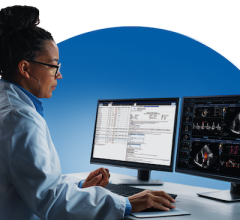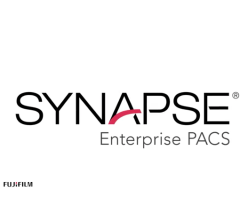
Getty Images
April 23, 2020 — A new expert panel consensus statement published simultaneously in the journals Radiology: Imaging Cancer, Chest and the Journal of the American College of Radiology provides guidance to clinicians managing lung cancer screening programs and patients with lung nodules during the COVID-19 pandemic.
In many parts of the world, the COVID-19 public health crisis has stressed the health care system close to or even past its breaking point. Hospital resources are focused on the immediate needs of patients suffering from the disease, particularly those who are critically ill. The strain on health care systems and the need to control the virus using containment and mitigation has impacted the care of patients with other common medical disorders.
Clinicians have been forced to balance the risk of delaying potentially necessary exams against the risk of exposing patients to the virus in hospital settings or exposing healthcare workers to patients who may be asymptomatic carriers of the disease. This is further complicated by the re-allocation of resources, including hospital personnel, to evaluate and treat patients with COVID-19.
“The potential risk of exposure or transmission during routine care, as well as the diversion of resources to help combat the pandemic, has forced clinicians to make decisions about the timing of care,” said Peter J. Mazzone, M.D., M.P.H., FCCP, director of the Lung Cancer Program and Lung Cancer Screening Program for the Cleveland Clinic Respiratory Institute. “This document provides guidance that we hope will help with these decisions. It outlines acceptable variances from standard practice during the pandemic and provides items to consider that could influence the decisions for a given patient.”
Performing a lung cancer screening exam or the evaluation of lung nodules both carry additional risk during the COVID-19 pandemic. There is added risk to the patient, other patients and healthcare providers from exposure to the health care environment and the contact that occurs during testing. Recovery from surgical resection may be influenced by asymptomatic carriage of the virus. These added risks may upset the balance of benefit and harm struck by current (pre-COVID) guideline recommendations. There is also a shift in health care resources, toward canceling elective procedures and imaging, in areas where COVID-19 is surging, or where systems are preparing for a surge, making it more difficult to adhere to available guidelines. These exposure risks and resource constraints have led the Centers for Disease Control and Prevention (CDC) to suggest that non-urgent care be deferred.
To date, clinicians and hospital systems have been independently determining how to modify their screening and lung nodule management programs during the pandemic. The consensus statement was developed to provide expert opinion to clinicians regarding the performance of lung cancer screening and the management of patients with lung nodules in a manner that is consistent with current CDC COVID-19 guidance.
Three project leaders and 21 panel members participated in developing the consensus statement. Their specialties included pulmonology, thoracic radiology and thoracic surgery. Twelve scenarios were developed, each with a statement requiring a vote. The voting results for all statements exceeded the threshold of 70 percent of panel members voting agree or strongly agree. Scenarios recommendations and notes are included in the report.
Consensus was unanimous for recommendations to delay baseline or repeat annual screening, and over 95 percent of panelists agreed to delay the evaluation of pulmonary nodules detected incidentally or by screening that have a low probability of cancer or are likely to be an indolent cancer.
Consensus was less uniform but still strong for recommendations to delay or modify the evaluation and management of patients with nodules measuring greater than 8 millimeters in average diameter.
The authors note that these recommendations are not “one-size-fits-all” and state that patient preferences should be considered in all of the scenarios, because individual patients are likely to differ in how they perceive the potential benefits and harms associated with delayed or modified evaluation and management.
The paper points out that due to the fluidity of the situation, it is not possible at this time to determine when it will be advisable to return to usual care practices.
“We hope these statements are helpful and provide some reassurance and direction to individuals who are eligible for lung cancer screening, patients with lung nodules, and the clinicians who care for them,” the authors concluded.
For more information: www.rsna.org
Related Coronavirus Content:
VIDEO: Imaging COVID-19 With Point-of-Care Ultrasound (POCUS)
The Cardiac Implications of Novel Coronavirus
CT Provides Best Diagnosis for Novel Coronavirus (COVID-19)
Radiology Lessons for Coronavirus From the SARS and MERS Epidemics
Deployment of Health IT in China’s Fight Against the COVID-19 Epidemic
Emerging Technologies Proving Value in Chinese Coronavirus Fight
Radiologists Describe Coronavirus CT Imaging Features
Coronavirus Update from the FDA
CT Imaging of the 2019 Novel Coronavirus (2019-nCoV) Pneumonia
CT Imaging Features of 2019 Novel Coronavirus (2019-nCoV)
Chest CT Findings of Patients Infected With Novel Coronavirus 2019-nCoV Pneumonia
Find more related clinical content Coronavirus (COVID-19)
ACC COVID-19 recommendations for the cardiovascular care team
VIDEO: What Cardiologists Need to Know about COVID-19 — Interview with Thomas Maddox, M.D.
The Cardiac Implications of Novel Coronavirus
ESC Council on Hypertension Says ACE-I and ARBs Do Not Increase COVID-19 Mortality


 February 04, 2026
February 04, 2026 









